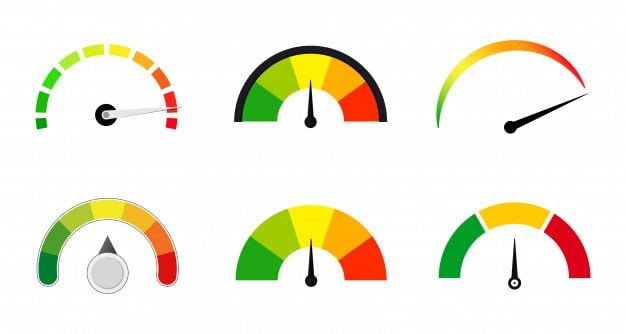8 Things You Should Know About Credit Score
by Abdul Aziz Mondal Finance Published on: 24 December 2020 Last Updated on: 16 August 2021

Building and maintaining a responsible credit score is necessary for anyone hoping to make major life purchases such as a new home, car, or higher-end credit card. Unfortunately, the basics of credit and its successful management elude many, as direct education on the subject is rare for that outside of the financial business world.
If you’re new to credit establishment, or simply have some lingering questions, consider some of the following facts to help guide you in your search for better credit and thus better living.
Whether it is for seeking personal loans or for businesses looking at a commercial line of credit, the score becomes an important marker to judge creditworthiness. This is why individuals, as well as businesses, need to ensure that they have a positive Credit Score of over 700 Points. This makes availing credit from leading banks and institutions that have better terms and lower rates of interest possible. The better your credit score, the better will be the trust factor to gauge your status of financial responsibilities.
1. What Is Considered a “Good” Score
Although the overall range varies based on the credit bureau, your FICO score — generally regarded as the most reliable, most frequently referenced score — offers a credit range of 300-850. Anything around 700 is considered a “good” score by most lenders, but you will want to break into the 750 or higher range to ensure the best chance of approval and benefit from lower interest rates.
2. How Your Score Is Decided
FICO relies on five factors to determine an individual’s credit score: payment history, credit utilization, length/age of credit history, inquiries, and diverse credit sources.
Although you should meet each qualification to achieve the best possible score, focusing on your payment history and credit utilization is the easiest way to boost your credit, as they are the primary deciding factors. Payment history simply requires that you make payments on time and have a history that reflects that. Credit utilization means you should not use all of the credit available to you on any given line.
3. How To Check Your Credit Score
Before attempting to either build or use your credit, learn how to check credit score reports and numbers on your own. Contrary to popular belief, accessing your score will not count as an inquiry, meaning you will not lose any credit points as a result. Most can access their score through their banks or credit card companies, but you can also check your score online via each of the three major bureaus. Each offers one free report each year.
4. How To Raise Your Score
Once you’ve seen and understood your score, the next step is determining the most effective ways to raise it. Focus on the five factors that determine your score in order to build credit, focusing on the top two: payment history and credit utilization. Many people take out credit cards just so they can use them as a means of building credit.
Paying off your credit card statement each month, therefore reflecting less credit utilization, is one of the quickest ways to demonstrate reliable debt and credit management.
5. What Your Credit Report Does
It’s important to understand the difference between a credit score and a credit report. While the score is simply a number that suggests how well you manage your credit, the report details your utilization of the credit you have. It allows you, as well as lenders, to see a full history of your transactions and debts.
6. How To Identify Fraud on Your Report
Regularly checking your credit score can help ensure that you never become a victim of credit fraud. If, for example, you notice that your score has dropped significantly, you may want to pull your credit report to examine it for unusual activity. If you find transactions that you did not make, you should consider consulting help and freezing your credit in the meantime.
7. How Joint Accounts Work
If you and your partner establish a joint account for something such as the purchase of a new home, you may be wondering how it will affect your credit. The short answer is that it doesn’t; joint accounts do not result in separate scores or reports. Instead, the activity merely shows up on both accounts separately.
8. Why You Need Good Credit
Although lenders often consider other factors when determining your eligibility, a solid credit score is the easiest way to ensure not only approval but also lower payments. Having a good credit score can save you hundreds, if not thousands, by ensuring you receive the best deals on loans or other debit transactions.
A good credit score offers you a number of options that aren’t available to those with a lower score, as credit is the primary factor in determining your reliability when it comes to borrowing money from the bank. Building your credit requires patience and sacrifice, but doing so can not only save you significant money but also help you achieve life’s greatest ambitions.
Read Also:




































































































